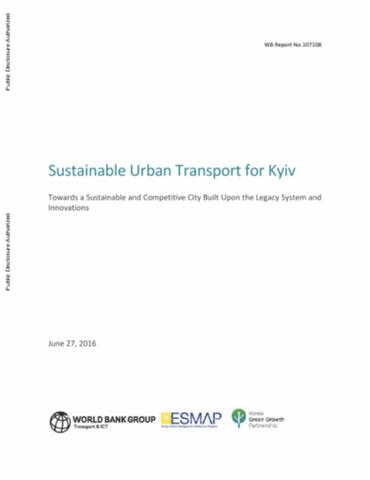The World Bank is a vital source of financial and technical assistance to developing countries around the world. We are not a bank in the ordinary sense but a unique partnership to reduce poverty and support development. The World Bank Group has two ambitious goals: End extreme poverty within a generation and boost shared prosperity.
- To end extreme poverty, the Bank's goal is to decrease the percentage of people living on less than $1.25 a day to no more than 3% by 2030.
- To promote shared prosperity, the goal is to promote income growth of the bottom 40% of the population in each country.
The World Bank Group comprises five institutions managed by their member countries.
The World Bank Group and Land: Working to protect the rights of existing land users and to help secure benefits for smallholder farmers
The World Bank (IBRD and IDA) interacts primarily with governments to increase agricultural productivity, strengthen land tenure policies and improve land governance. More than 90% of the World Bank’s agriculture portfolio focuses on the productivity and access to markets by small holder farmers. Ten percent of our projects focus on the governance of land tenure.
Similarly, investments by the International Finance Corporation (IFC), the World Bank Group’s private sector arm, including those in larger scale enterprises, overwhelmingly support smallholder farmers through improved access to finance, inputs and markets, and as direct suppliers. IFC invests in environmentally and socially sustainable private enterprises in all parts of the value chain (inputs such as irrigation and fertilizers, primary production, processing, transport and storage, traders, and risk management facilities including weather/crop insurance, warehouse financing, etc
For more information, visit the World Bank Group and land and food security (https://www.worldbank.org/en/topic/agriculture/brief/land-and-food-security1
Resources
Displaying 291 - 295 of 4906Sustainable Urban Transport for Kyiv
This report presents the scope and findings of the Economic Sector Work on Sustainable Urban Transport for the City of Kyiv, financed jointly by the Energy Sector Management Assistance Program (ESMAP) and the Korea Green Growth Trust Fund (KGGTF). The analysis consists of a rigorous evidence-based review of the strengths and weaknesses of Kyiv’s public transport system and a proposed plan improve its network and operational efficiency.
Country Partnership Framework for Montenegro for the Period FY16-FY20
The Country Partnership Framework (CPF)
for Montene gro covers the period from July 1, 2015 to June
30, 2020 (fiscal years 2016-2020). This CPF builds on the
results and lessons of the previous World Bank Group (WBG)
Country Partnership Strategy (CPS), which originally covered
the period July 1, 2011 to June 30, 2014, and was
subsequently extended to June 30, 2015.The one-year CPS)
extension was intended to provide greater clarity on the
Country Partnership Framework for Tunisia for the Period FY 2016-2020
This Country Partnership Framework (CPF)
for Tunisia, prepared jointly by International Bank for
Reconstruction and Development (IBRD), International Finance
Corporation (IFC) and Multilateral Investment Guarantee
Agency (MIGA) covers the period Fiscal Year (FY) 2016
through FY 2020. The CPF is anchored in the Government of
Tunisia’s September 2015 Note d’Orientation Stratégique and
the WBG’s October 2015 Strategy for the Middle East and
Systematic Country Diagnostic for Uzbekistan
This Systematic Country Diagnostic (SCD)
explores how Uzbekistan can consolidate its recent
achievements and accelerate progress on the twin goals of
eradicating extreme poverty and promoting shared prosperity.
The SCD is organized into five chapters. Chapter one frames
the issues of poverty reduction and shared prosperity, and
situates them in the context of Uzbekistan’s recent
development. It reviews the status and drivers of progress
Bhutan Macroeconomic and Public Finance Policy Note
Bhutan’s hydropower generation potential
raises the prospect of tremendous development opportunities
for the country: fast increasing export revenue, sustained
economic growth, and rapid poverty reduction. Driven by
developments in the hydropower sector, the country has grown
at an average rate of 7 percent per year over the last
decade, while poverty has declined remarkably fast. But
hydropower development also creates significant challenges







